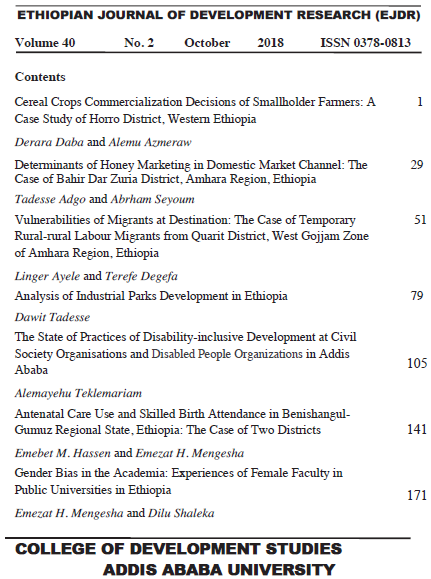Vulnerabilities of Migrants at Destination: The Case of Temporary Rural-rural Labour Migrants from Quarit District, West Gojjam Zone of Amhara Region, Ethiopia
Keywords:
cash crop production, wage labour, rural-rural migration, vulnerabilities, shocksAbstract
Migration is associated with opportunities that it generates for migrants and
their households, on the one hand, and with vulnerabilities of migrants at
destination on the other. This article explored ways in which temporary
rural-rural labour migrants from Quarit District werre exposed to multiple
and interdependent shocks at destination. It employed qualitative research
approach whereby data were generated from focus group discussions, key
informant interviews and secondary sources. Participants in the focus group
discussions included migrants from purposively selected four migrant
sending kebeles in Quarit District. Key informants comprised experts drawn
from relevant offices at various levels of administration. The analysis relied
on thematic and descriptive approaches. The findings showed that rural-rural
labour migrants, who werre in search of opportunities in cash-crop-growing
areas in Ethiopia, were vulnerable to multiple and interacting shocks of crop
failure, market, health, employment and crime. The levels of vulnerabilities
might vary across migrants depending on a complex mix of contextual
factors situated at various geographical scales, and attributes and risk
management strategies of migrants. The results also pointed out the fact that
vulnerability could not be fully captured in a localised and single-shock
based vulnerability analysis alone. These imply the need to mainstreaming
migration into development policies and strategies that are designed to
address this kind of vulnerability.
Downloads
Published
How to Cite
Issue
Section
License
Copyright (c) 2022 Linger Ayele, Terefe Degefa

This work is licensed under a Creative Commons Attribution 4.0 International License.


